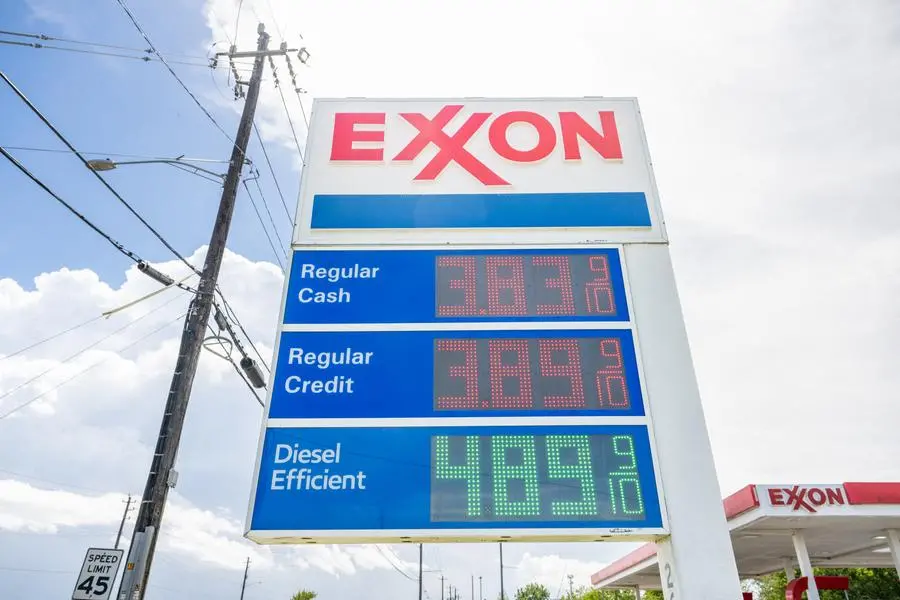PHOTO
The US state of California sued five of the world's largest oil companies on Friday, alleging the firms caused billions of dollars in damages and misled the public by minimizing the risks from fossil fuels, The New York Times reported.
It follows numerous other cases brought by US cities, counties and states against fossil fuel interests over the impact of climate change as well as alleged disinformation campaigns spanning decades.
The civil case was filed in superior court in San Francisco against Exxon Mobil, Shell, BP, ConocoPhillips and Chevron, which is headquartered in California. The American Petroleum Institute, an industry group, is also a defendant in the case, The New York Times said.
"For more than 50 years, Big Oil has been lying to us -- covering up the fact that they've long known how dangerous the fossil fuels they produce are for our planet," California Governor Gavin Newsom said in a statement on Friday, confirming the state's lawsuit.
"California is taking action to hold big polluters accountable," he added.
The companies and their allies "intentionally downplayed the risks posed by fossil fuels to the public, even though they understood that their products were likely to lead to significant global warming," dating back to the 1950s, the suit alleged, according to the Times.
Representatives of the defendants did not immediately reply to requests for comment from AFP.
The California case seeks the creation of an abatement fund to pay for future damages caused by climate disasters in the state, which is on the front lines of climate change-fueled wildfires, flooding and other extreme weather phenomena.
"Oil and gas company executives have known for decades that reliance on fossil fuels would cause these catastrophic results, but they suppressed that information from the public and policymakers by actively pushing out disinformation on the topic," the 135-page complaint reads, according to the Times.
"Their deception caused a delayed societal response to global warming. And their misconduct has resulted in tremendous costs to people, property, and natural resources, which continue to unfold each day."
Since the current wave of environmental litigation against fossil fuel firms began around 2017, the industry has sought to avoid state trials on procedural grounds.
That effort received a major blow in May when the US Supreme Court declined to consider an appeal in two cases, meaning they could proceed.
The lawsuits are modeled on successful cases against Big Tobacco as well as against the pharmaceutical industry over the proliferation of opioids.





















